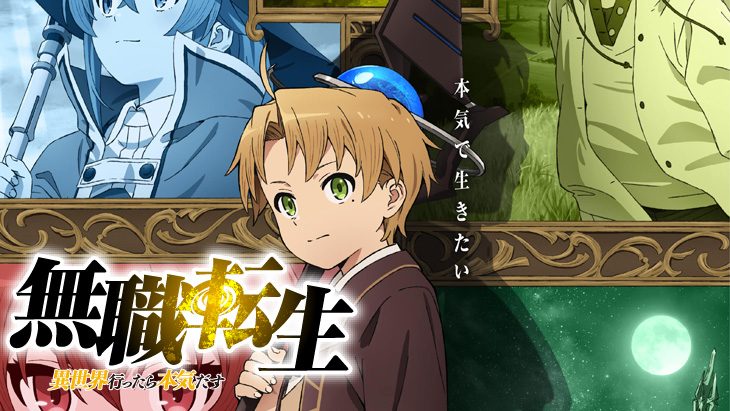
Mushoku Tensei: Jobless Reincarnation is yet another isekai series that’s come out this season. But as mentioned in our review of The Hidden Dungeon Only I Can Enter, for better or worse: I like Isekai.
This series tries to follow many of the same story beats of a typical isekai, but tempers it by also telling a story about redemption, personal growth, and forgiveness. Not the kind of selfless forgiveness a hero has for a villain, but the kind of forgiveness reserved for your past self.
Mushoku Tensei: Jobless Reincarnation
Studios: Studio Bind
Publishers: Egg Firm
Director: Manabu Okamoto
Translation: Funimation
Premiere: January 11, 2021
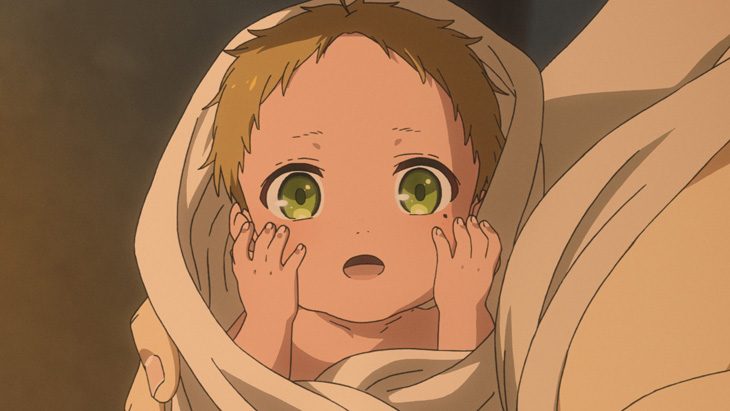
It’s not often that I’ll criticize the title directly, but this is a translation issue. Mushoku Tensei: Jobless Reincarnation is an incomplete translation of the show’s title Mushoku Tensei: Isekai Ittara Honki Dasu.
It’s a small criticism, but the translation of the title will be the first thing that viewers see. The full title translates to Jobless Reincarnation: I Will Seriously Try If I Go To Another World. But why’s that important?
It’s important because without the knowledge that the protagonist is someone overcoming trauma and lived a life of bullying-induced agoraphobia will feel nothing for the triumphs he makes.
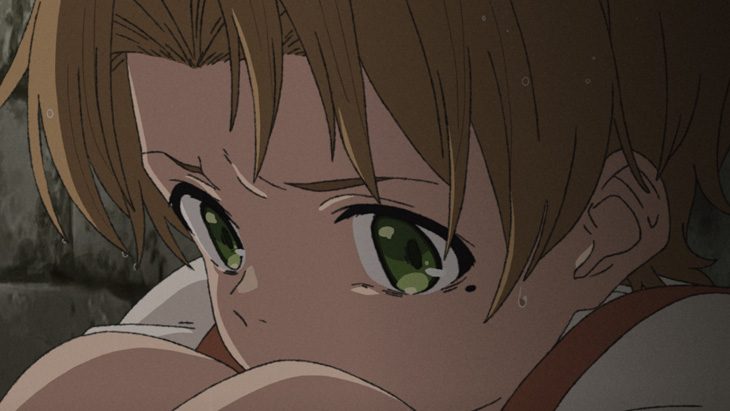
Mushoku Tensei: Jobless Reincarnation follows the adventures of the young Rudeus Greyrat. Rudeus was reincarnated after being thrown out of his home by his family.
After living a life as a shut-in well into his 30s, he was forced out onto the streets and died when he tried to save three teenagers from getting run over by a truck. So that’s the significance of the title; he lost his former life to bullying and trauma and with a fresh start he really can “seriously try”.
While many isekai series in recent seasons try to subvert the cliches that make up the genre, Mushoku Tensei ironically achieves this by leaning into the wish-fulfillment facets of the genre.
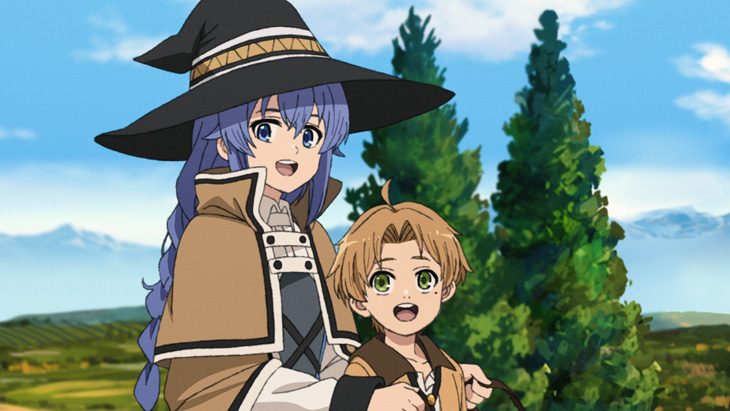
Yes, Rudeus does have a unique power but only insofar as his mana potential and flexible attitude goes. With an adult brain in a child’s body he figures he can train up his magic capacity while he’s young. At the same time, his different “common sense” makes it easy for him to figure out how to cast spells without an incantation.
Do those sound like cheat powers? Absolutely they do, but we learn later they’re not unique; mainly because Rudeus has little issue with sharing his knowledge. It’s not long after his fifth birthday that he’s already practicing Saint Level magic and is teaching one of his new friend Sylph how to do magic without incantations.
The core of the story in Mushoku Tensei is always about the ability of Rudeus to grow and learn from the trauma and mistakes of his past life. During the first few episodes (I can’t speak for the later ones yet but the trailers show some intense looking battles) his enemies aren’t monsters, demons, or gods; they’re making friends, leaving his family’s estate, and standing up to bullies.
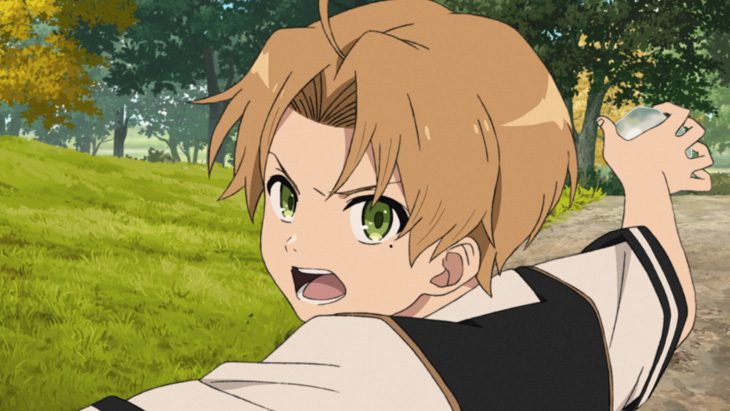
Rudeus is constantly able to appreciate the chance he’s been given to learn the social skills and have the experiences he withdrew from now that he’s in another world. “Jobless Reincarnation” barely scratches the surface of what the series is about.
Although despite his wholesome growth, there’s plenty of fanservice in the series that it’s almost surprising. It’s expected that he might have lecherous thoughts about nursing from his mother as an infant (he is a middle-aged man on the inside); but the real surprises come from scenes like showing his magic tutor touching herself in the hallway to the sound of his parents trying for a second child.
It’s hard not to at least mention the protagonist’s personality, yes he’s perverted but not in a way that hasn’t been done before in anime. Stealing panties, leering, groping, these aren’t meant to be admirable traits but they’re given comedic timing, with the humor being is perverted personality less than at the expense of the women around him.
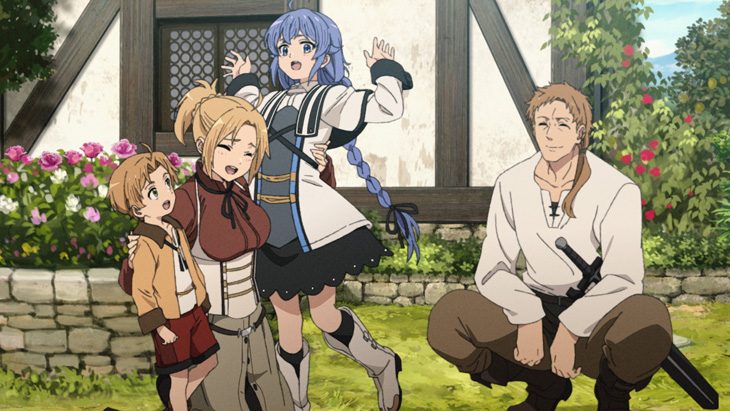
The art direction for the series is easy on the eyes. Characters mostly use rounded shapes and don’t generally have angular faces. It’s not something you’d actively notice at first but it really contributes to the “comfortable” ambience they’re trying to capture with the protagonist’s youth and personal growth.
Character designs are diverse in body shape from the curvaceous body of Rudeus’ mother, the petite Roxy, and the stern secretary-like atmosphere of the Greyrat family maid Lilia.
The backgrounds are pastoral and scenic, the Greyrat house is a small rustic estate with a garden and yard for his father Paul to train his swordsmanship. Scenes show the characters traveling around the nearby village with painted trees and fields of golden wheat.
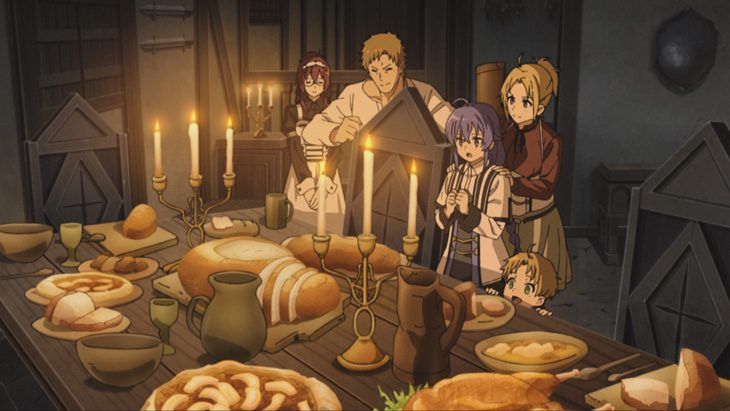
There is some usage of 3DCG in the series, but it doesn’t noticeably mar the experience. The most blatant and poor quality usage was for a horse and cart that only appeared on screen for like four seconds, so it’s a forgivable transgression.
The voice acting cast is superb, especially with the voices of Yumi Uchiyama and Tomokazu Sugita providing the voices for Rudeus as a child, and his internal monologue respectively. Uchiyama is largely known for her roles as Rei Kiriyama in 3-gatsu no Lion and Youko Inkuma in Kiniro Mosaic; Sugita is known for his roles as Akuru Akutsu in Aho Girl and Hideki Motosuwa in Chobits.
The opening theme is Tabibito no Uta by Yuiko Oohara and is a vocal heavy song that uses acoustic instruments to create the kind of feeling you’d expect from the opening of a fantasy or isekai anime. The ending theme Only is also performed Yuiko Oohara and also relies heavily on vocals (which isn’t a bad thing, Oohara is a fantastic singer) but uses more modern instruments and goes for a dramatic rock song.
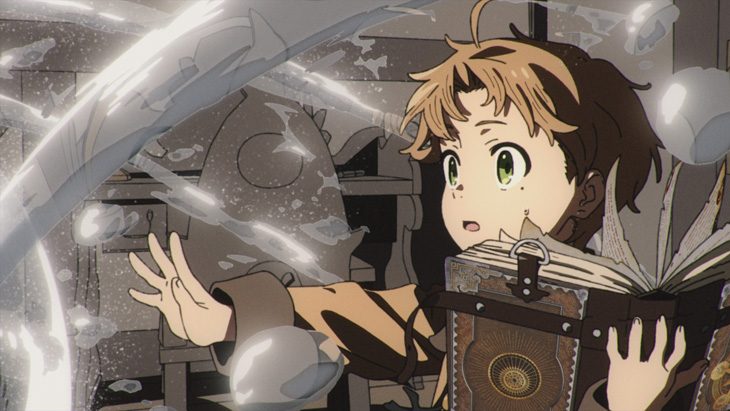
Ultimately, Mushoku Tensei: Jobless Reincarnation lives up to its original Japanese title and tells a hopeful story about someone finding a second chance in a new world. Its use of crass humor lands well and emphasizes what kind of person Rudeus was before he died.
Fans of isekai probably don’t need to be told this one’s a good one, but unfortunately it doesn’t offer much to those who aren’t fans of isekai already. There is one niche exception in that fans of “ecchi” comedies from the 80s, 90s, and 2000s will probably get a kick out of the panty-stealing antics and perversion of Rudeus.